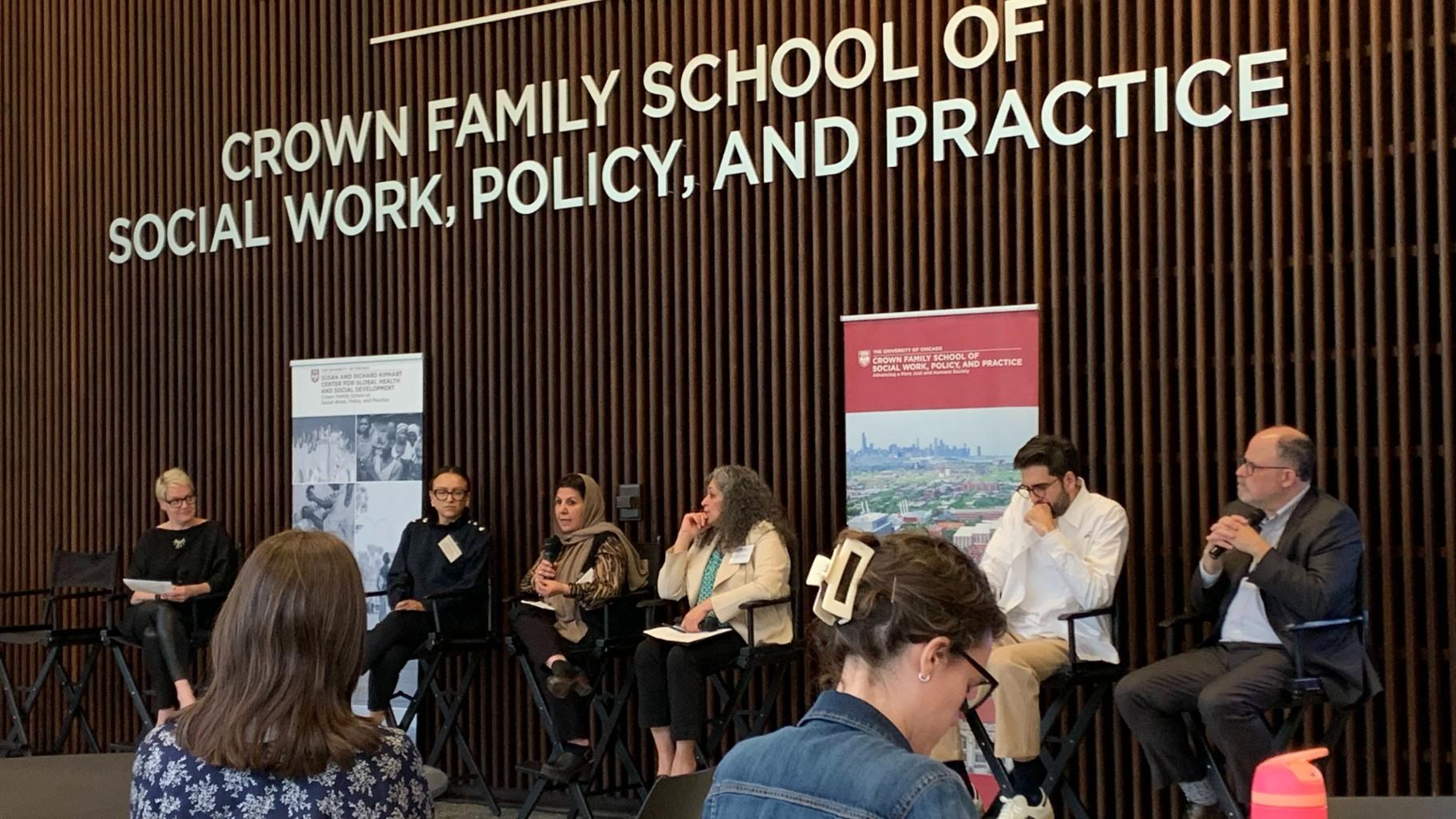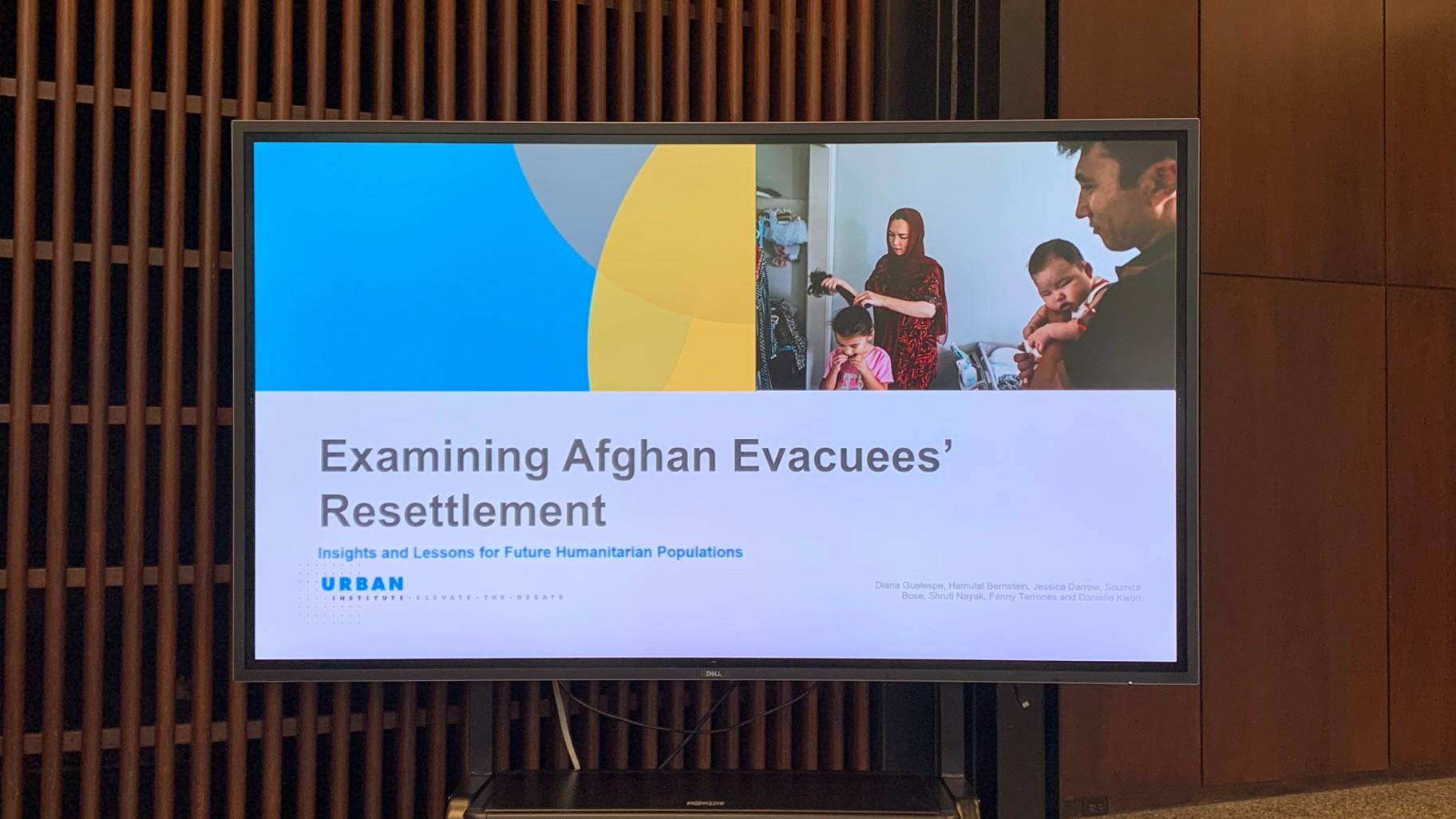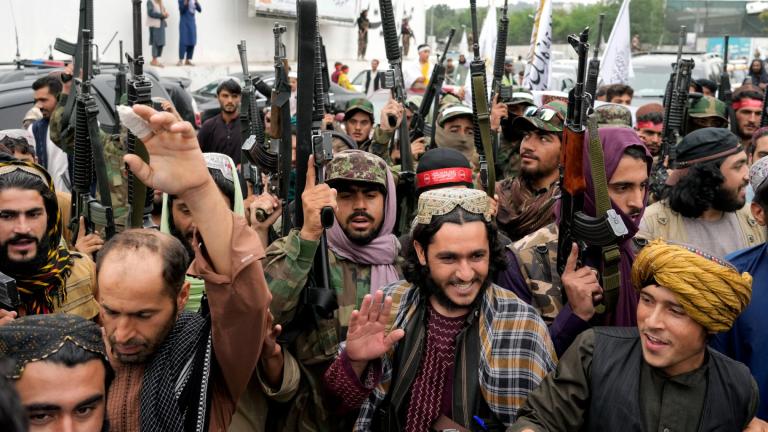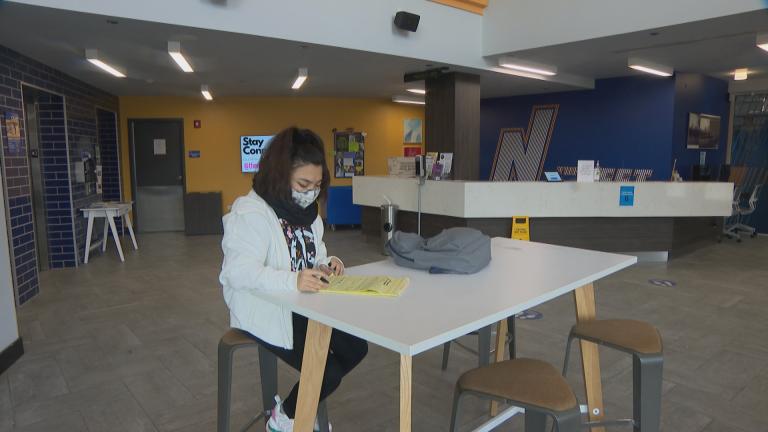 Sima Quraishi, executive director of Muslim Women’s Resource Center, third from left, speaks about her experience assisting Afghan evacuees during a discussion held at the University of Chicago’s Crown Family School of Social Work, Policy, and Practice on April 17, 2024. (Eunice Alpasan / WTTW News)
Sima Quraishi, executive director of Muslim Women’s Resource Center, third from left, speaks about her experience assisting Afghan evacuees during a discussion held at the University of Chicago’s Crown Family School of Social Work, Policy, and Practice on April 17, 2024. (Eunice Alpasan / WTTW News)
The resettlement of Afghan evacuees to the U.S. nearly three years ago offers lessons for how federal and local governments can better support people who come to America during humanitarian crises, according to local officials and researchers.
After the Taliban regained control of Afghanistan, an initial 80,000 Afghans were evacuated to the U.S. in 2021 following America’s botched withdrawal from the country. More than 2,300 Afghan evacuees have since resettled in Illinois, according the Illinois Department of Human Services.
A discussion held Wednesday at the University of Chicago’s Crown Family School of Social Work, Policy, and Practice came in light of a report published by the Urban Institute last month about the evacuees’ experiences resettling in the U.S.
The report compiles interviews with Afghan evacuees and various community stakeholders at three locations — Chicago, San Antonio and northern Virginia — to identify ongoing needs of Afghan evacuees. Many of their lives remain in limbo, according to the report.
That’s because many Afghan evacuees entered the U.S. under humanitarian parole, which gave them temporary authorization to stay in the U.S. but does not offer a pathway to lawful permanent residence status, according to the report.
“Living in legal limbo is incredibly unhealthy for the mental state of anybody who finds themselves in such a position,” Jessica Darrow, a University of Chicago associate instructional professor and one of the report’s co-authors, said during a presentation on the report Wednesday. “Evacuees noted several ways that their parole status was impacting their daily lives.”
Among the recommendations researchers made is for the U.S. Congress to pass the Afghan Adjustment Act, which would grant lawful permanent residence, or green cards, to Afghan evacuees.
Yearslong efforts to pass the measure have failed, including in a blocked U.S. Senate bill in February.
The report also identifies key gaps in services for Afghan evacuees during their resettlement in the U.S., such as the lack of affordable housing, mental health services and long-term legal services. Community stakeholders also said challenges such as language gaps, bureaucratic red tape, insufficient funding and limited staff capacity impeded their work to address needs.
 A March report from the Urban Institute compiles interviews with Afghan evacuees and community stakeholders in Chicago to identify ongoing needs and lessons on how governments can better support future humanitarian arrivals. (Eunice Alpasan / WTTW News)
A March report from the Urban Institute compiles interviews with Afghan evacuees and community stakeholders in Chicago to identify ongoing needs and lessons on how governments can better support future humanitarian arrivals. (Eunice Alpasan / WTTW News)
The report determined best practices in supporting Afghan evacuees, such as bridging the cultural and information gap between evacuees and the broader community, and creating government-convened collaborations with organizations to help expedite processes and cut through red tape.
The report offered as an example the fact that Illinois officials set up a temporary center for evacuees in hotels, bringing in state staff and resources while also contracting ethnic community-based organizations to provide services.
“We had a mental health clinic in the hotel, and we were able to help them out,” Sima Quraishi, executive director of the Muslim Women’s Resource Center, said during the discussion. “We had teachers from public schools that would come to the hotel to help out the kids with artwork. The reason the program was so successful was because we were all working together.”
Other speakers featured in the discussion were Karina Lopez, associate director of the Office of Welcoming Centers for Refugee and Immigrant Services at IDHS and Beatriz Ponce de León, Chicago’s deputy mayor of immigrant, migrant and refugee rights.
In Chicago, various community stakeholders were able to draw on existing networks and previous histories of collaboration to help respond to the ongoing needs of Afghan evacuees, Darrow said.
In this case, community stakeholders included resettlement agency staff, community-based organization staff, school administrators, employers, medical professionals, sponsors, landlords, legal providers, faith leaders, veterans, local government staff and volunteers, according to the report.
“If the system is thoughtfully redesigned in an effective, collaborative, stakeholder-led way, we can provide humanitarian protection to those who need it and to those who seek it,” Mohammed Naeem, deputy director of strategy and partnerships at the American Immigration Council, said during the discussion. “It’s not outside the realm of possibility.”
Passing the Afghan Adjustment Act offers an opportunity for the U.S. to make good on its promise to Afghan evacuees who worked alongside U.S. soldiers during the war in addition to those who remain in Afghanistan still seeking safety and relocation, Naeem said.
“We had promised folks that we would protect you if you supported us and helped us,” Naeem said. “We have not fulfilled those promises.”
Contact Eunice Alpasan: @eunicealpasan | 773-509-5362 | [email protected]








